| Article Overview:
Forty-years ago when President John F. Kennedy was assassinated, I was
only thinking of myself and a date that would change my life. I
found, instead, that saluting a dead president was more important than
any date. |
 VigilanceVoice VigilanceVoice
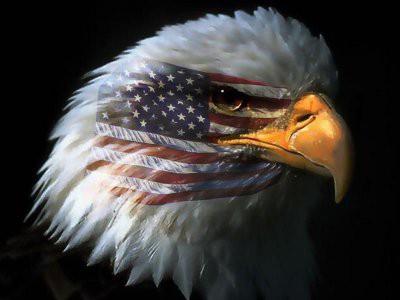
www.VigilanceVoice.com
Saturday--November
22, 2003—Ground Zero Plus 801
___________________________________________________________
Saluting Dead Presidents
___________________________________________________________
by
Cliff McKenzie
Editor, New York City Combat Correspondent News
|
GROUND ZER0, New York, N.Y.--Nov. 22, 2003--
It was forty years I first saluted a dead president. His name
was John F. Kennedy. My act was one of shame and
intimidation, but taught me a lesson in Vigilance, one I have never
forgotten.
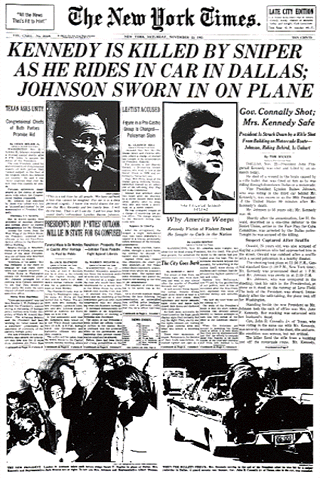 |
|
Forty years
ago today, John Fitzgerald Kennedy was assassinated |
It was a dreary, foggy day on the campus of
the University of Oregon in Eugene. For months I had been
screwing up enough courage to ask a fellow student out, the daughter
of an English professor.
There was a small coffee shop at the edge
of the campus, frequented by students mostly. It was a dark
place, with high-backed wooden booths chipped and carved by hoards of
eager-minded youths not unlike myself who passed through the halls of
academia in search of some sophomoric wisdom path that might lead them
to the great gates of the Truth.
I was majoring in psychology at the time,
although my heart was in writing. I saw no future in
writing and had chosen psychology as a means to an end rather than to
sate some deep passion to change the world by screwing people's heads
on properly. I also think part of my motivation was to
better understand myself, and the demons that haunted me.
One of those demons, who still resides on
my shoulder, was the one who hisses: "You're not worthy!
You're a nobody! You're a failure, a loser!"
That vocabulary machine-gunned my thinking
ever since I was a small child. I fought it, as all
children seem to, and thrust myself in the teeming swimming pool of
life even though I had no idea how to swim in the turgid sea of
self-worth and self-awareness. I held to the position that what
I was on the outside would disguise what I really was on the inside.
If I were to pretend I was "somebody" then I might fool the world that
I was truly a "nobody."
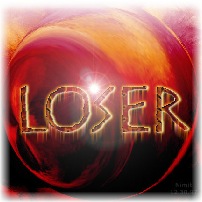 |
|
One of the
demons I had then is still perched on my shoulders |
That's a great part of the reason it had
taken me virtual months to screw up the courage to ask this young
lady, whose name four decades later escapes me, to coffee for the
singular purpose of blurting out the words: "Would you like to
go on a date?"
The girl represented the "other side of the
tracks." Her mother, the English professor, symbolized
"high intellectual society," and, I figured if the girl agreed to go
on a date with me, I might be swept into the "upper class," but, my
fear ruled my every thought that if she rejected me, I would be
forever stuck in the "lower class" stigma I had buried myself within.
I had been graduated from high school with
a virtual "D" average and went to junior college on probation.
My high school grades were so poor that even though junior colleges
accepted anyone, the poor academic students like myself were required
to take "bonehead" classes. If one were to fail those classes,
one would be ejected from junior college.
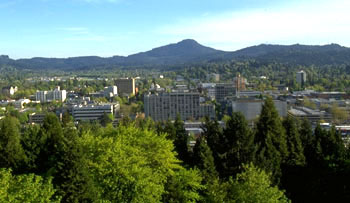 |
|
I was the only
one in my family who had gone to college:
The University of Oregon |
I was the only one in my family who
had gone to college. I grew up in a caste system--the
military--that defined the serfs from privileged by rank.
There was an invisible line between the officers and enlisted that one
did not cross, one carved just as deeply segregation defined bathrooms
in the Deep South at the time, illustrated by bathroom signs that
read: "Men," "Women," "Colored."
In many ways, I felt I was born "beneath the
salt," a slave-child to a life destined to stand at the gates of
success with a shovel and pick axe over my shoulder, digging the
sewers that helped the "successfuls'" bodily wastes tumble downhill so
guys like me could haul it away.
 |
|
No one shagged
a finger in my face with "You're a Nobody!" |
No one shagged a finger in my face and shouted:
"You're a Nobody!" But the world I lived in seemed to suggest it
at every turn. My breakthrough to college was my
violent refusal to accept I had a rock around my neck, dragging me
down to the bottom of the primordial ooze from which all humans
evolve, only I was the one who was required by the universe to stay
buried in the ooze while other genes of my ilk might rise up to the
surface, blossom and fly away.
Despite all my angst I was a nobody, I
ground hard to foil the demons of my mind. I found I had
the talents to achieve despite my own lashings with my whip of
Self-Degradation and Self-Deprecation.
So it was more than just a coffee "date"
with this young lady on November 22, 1963 that I am reporting.
It was the chance of a "lifetime" to rise up out of the Nobody Well
into the sunlight of being Somebody. If "she" only would go out
with me, maybe it would prove I had been successful in creating a mask
so well honed that she did not see I was unworthy of her and her
social status.
Little did I know the Beast of Terror
was with me that day, plotting and planning as he does to twist fate
in such a manner as to change my life forever.
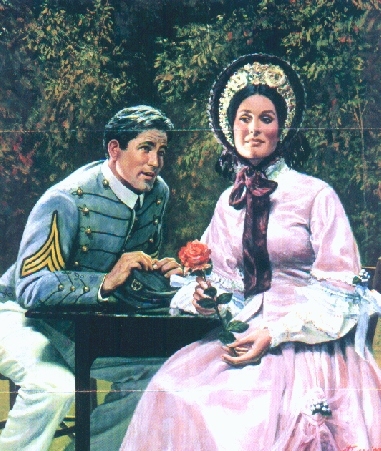
|
|
My throat was
dry as I steered the conversation toward my hopeful date with
'her' |
When she arrived, I dug down into my
threadbare pockets for the few quarters necessary to pay for coffee
and rolls. I worked for my college money, and even a
thin dime was a treasure. I was willing to spend it all on
caffeine that day in hopes she might offer her hand to pull me out of
the slime by agreeing to date me, to endorse me as a "Somebody."
I even thought about her someday introducing me to her English
professorial mother, another rung on the ladder of being accepted
beyond my station in life.
I was throat-dry as I steered the
conversation toward the date. I was just about in the
middle of asking her out when the radio that usually played music
behind the counter began to cackle with frenetic Voices. The
volume rose as the counter clerk tuned it up.
I was leaning forward, coughing out my
request for a date when the news captured all ears but mine.
The girl sitting across from me stiffened. Her face turned
toward the anonymous Voice on the radio. She stared at me
like a deer caught in the headlights, a common sight in Eugene where
the forests were thick with wildlife.
"We're all going to die! My
God, we're all going to die!"
Her face went white. Her eyes
glazed over with a deadly emptiness, as though she erased all the
pent-up passion I was emitting toward her, as though nothing in the
world mattered but her safety, her security.
"My mother. I have to find my
mother."
She bolted up from the hard wooden seat,
grabbed her books and ran wildly out the door. I remember
shouting after her: "But what about our date....what about our
date..."
I sank back into the booth, angry,
red-faced, sullen. I had tried to shut out the
Voices radiating the pall of death and horror between every molecule
in the coffee shop's atmosphere. I sat clutching my
now less-than-hot coffee mug, confused and befuddled how the words
coming from the radio could have changed my life, cast me into the
seas of Nobodyville with such cruelty, such brutal timing.
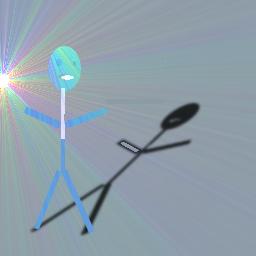 |
|
"What about
Me?" I gave little or no thought to Kennedy's death |
I gave little thought to the fact
that President John F. Kennedy had been shot, or that modern Terrorism
had reached its hand across the seas of time to splatter the brains of
those who believed America was invulnerable to such acts into the laps
of all the Complacent, all the Nay-Sayers who held that America had
evolved beyond the reach of Terrorism.
Sure, there was the nuclear threat of
Russia and the United States launching great attacks that would
annihilate the world, but the odds of that happening had reached such
a point that one was sure it would never happen. But the
killing of a president by a sniper, the assassination of one-on-one,
well, that was within the realm of everyone's imagination.
I slumped my shoulders and began the
long trek back to my apartment that I shared with two other students,
one from Israel and the other from England. Tony David,
Ted Tapper and I had lived together in a crammed, low-ceilinged
converted basement apartment. Ted was doing his masters and Tony
was struggling to finish pre-med. We had met and found
common interests. None of us was very social. Ted
was a socialist, angry at the world for trouncing on the poor
disheveled spirits of the world. He grew up in the lower-class
section of England, a member of the caste system as I had, and was
constantly railing against injustice.
Tony David was from Israel, an
orthodox Jew who was going to college to be a doctor but really wanted
to be a political scientist. He too had come from a working
class background and his goal was to break through the morass.
Tony had fought in the Israeli Army, struggling to help his nation
retain its grip in the heart of the middle east.
In a way, we were all on the
same journey--to become Somebodies.
Along the green, wet grass I
traversed to reach our apartment, the fog of the early morning hugged
the giant Douglas Firs spearing up some 300 feet into the air.
There was virtually no one around me as I trudged my way through the
wet grass, the weight of my thoughts more about how I had failed to
garner a date than the assassination of a president, one who had
sparked so much hope among the youth of the world that change in our
system of government and position himself as a world leader had achieved so
much in so little time.
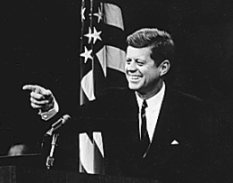 |
|
Kennedy had
achieved so much in so little time |
Kennedy had crushed the old ideas of
segregation. He forced change. He vowed to send
people to the moon. He challenged the Russians over Cuba
and won.
None of those accomplishments meant
much to me at the time. I was, at the best, apolitical.
I was on a journey to break free of my own slavery, and had little
time to think or concern myself about someone else's success.
And, after all, Kennedy represented one of the "haves" while I was a
member of the "have-nots." He was rich and handsome, from
the best schools with mountains of money and born with a silver spoon
in his mouth. Why should I bother shedding a tear for him.
If any tears were to fall, they would be for my twisted fate, my loss
of any chance for a date with the girl who I believed was my ticket
out of nothingness.
I opened the door to our tiny
apartment. I ducked, as always, to make it through the
doorway. The ceiling almost touched the top of my six-foot
four-inch head. I took a few steps in past the couch
and small bedroom into the kitchen.
The radio was blaring.
Someone was reading a poem by Robert Frost, something about a "sprig
of faith," and in the background was patriotic music. As I
entered the kitchen I looked up. There stood Tony David.
He was standing at attention,
saluting. Tears poured from his eyes. The patriotic music
consumed the tiny kitchen space. Tony didn't look at me.
He stared straight ahead, as though he were in full military uniform
giving tribute to a great leader.
Inside, I was reeling from
social defeat, from class failure, bleeding from my soul that my one
thin chance to rise up out of primordial ooze of class segregation had
been thwarted by the assassination of a man I had no relations to or
for.
But then I studied Tony's face.
I froze in that startling moment and realized something I had never
before thought about.
I had my first taste of
Patriotism.
Here was my close friend from
another country, not even a U.S. citizen, standing at full attention
and saluting a U.S. president with tears streaming down his eyes while
I, an American by birth, was more concerned about not getting a date
than in the death of a world leader who issued much hope to not only
the people in his country, to others in far off lands.
Shame and guilt drenched
me as I stood there, no more than six feet from Tony David.
It was an epiphany of sorts. In nanoseconds, the
value of my life seemed to collide with its worthlessness.
I realized I had no beliefs in my country or the world, but only in my
own, selfish desires to eject myself from my crippling lower-class
vehicle, the one I had been driving all my life in a maddening journey
to escape its boundaries.
My journey had blinded me to
emotions and feelings outside myself, such as the love of country, the
respect of nations, the concern for the world.
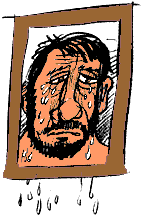 |
|
Tony David's
tears found their way to my soul |
Tony David's tears fell not just to
the floor that day, but they found their way to my soul. They
seemed to wash away the scales blinding me to the world, to the
passions of life around me.
I remember feeling the embarrassment
of my own selfishness, my own disinterest in things of value and
virtue that exist beyond one's self.
I put my books on the Formica table
with its wobbly legs and stood at attention in front of Tony. I
slowly raised my hand and saluted with him to the sound of the music
and to the Voices pealing out from the radio.
No words needed to be said.
On that day I realized the need for
me to have some sense of Patriotism, some measure of value for others
such as my country and the world at large.
After that event with Tony David I
mulled through my mind the emptiness within me, and the sorrow I felt
that I didn't have the passion that Tony had toward things beyond my
reach. Tony David saw America as the Sentinel of
Vigilance, a country that stood for something great and powerful in
the world, able to step in like a big brother and banish the bullies
of the world from tyranny and oppression.
His tears were for the loss of
a "brother," while I had no tears until Tony taught me how to cry for
others.
A few months later, with only a
few weeks to go before graduation, I chose to join the U.S. Marine
Corps. My decision was to remove myself from a world
where I was trying to find values by escaping my social status, to one
of a willingness to die for my country and what it stood for.
Tony and Ted were upset I
enlisted. They wanted me to finish college. Everyone
did. But I felt an emptiness within, something that needed
to be fed and nourished. I wanted to believe in something other
than the falsity that my station in life, measured by the eyes of
others, had been earned.
College was, for me, a
way of hiding from the duty and responsibility of who I was, for I
didn't know who I was. I had no idea.
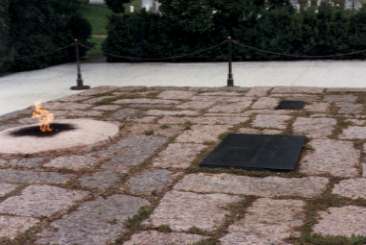 |
|
Tony David
knew more than I about Patriotism
(JFK's gravesite - the Eternal Flame - at Arlington Cemetery is
above) |
I knew only that Tony
David knew who he was. He knew he was willing to cry for another
world leader, to salute a man for what he did, not for how much money
he came from or what college degree he had earned.
Tony David knew a lot
about Patriotism--the belief not only in one's country, but in the
world at large. Tony was saluting the Vigilance of
John F. Kennedy to stand up to Terrorism at large.
I realize that today.
John Kennedy took on the Russians, took on space, took on bigotry and
prejudice and ended up with a Terrorist's bullet in his brain.
Tony was saluting the
measure of the man--saluting a Sentinel of Vigilance.
I was not capable of
saluting.
Now, I am.
Now, I understand what a
Sentinel of Vigilance is. He or she is a man or woman
willing to stand up for what is right for the Children's Children's
Children--a person unafraid to buckle to the whims of he world, or be
driven by Fear, Intimidation or Complacency into states of inaction or
compromise.
It has taken me nearly
forty years to learn this lesson.
It took September 11,
2001 for me to remember what I had learned over a lifetime--that
Vigilance grows out of Patriotism. That the love of one's
country must come before the love of all countries.
A country is nothing more
than a cradle for the children. To be a true Sentinel of
Vigilance I must love my country and all its children, and then extend
that love for other countries as the cradle for their children.
When I learn that lesson, I
then seek to bring to the cradle of all countries the same safety and
security I enjoy for my children.
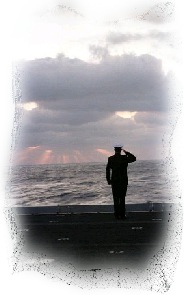 |
|
I salute Tony
David and JFK as great Sentinels of Vigilance |
I believe Tony David saluted
President Kennedy that day forty years ago because he saw Kennedy as a TerrorHunter, a man unafraid to face the Beast of Terror and drive him
from the cradles of other nations. He saw Kennedy as the
Sentinel of Vigilance, struck down by the Beast of Terror.
Today, despite lots of
politics, I see President Bush as a Sentinel of Vigilance.
I see him standing up to the world fighting for the cradles of
nations, for the children who live within those nations to have the
same freedoms and opportunities as Americans enjoy.
On this day, I
salute them both--great Sentinels of Vigilance.
And, I have learned, it's
okay to cry as you do, because the difference between a Nobody and
Somebody isn't who you date, it's what you're willing to salute.
Nov.
20-21--Ressurrecting
The
Bones
Of
Dissent
©2001
-
2004,
VigilanceVoice.com,
All
rights
reserved
-
a
((HYYPE))
design

|
|
|